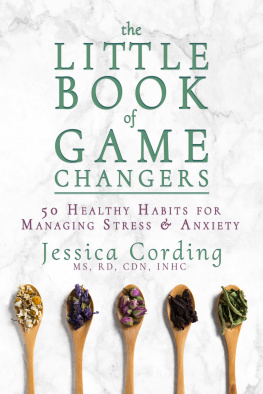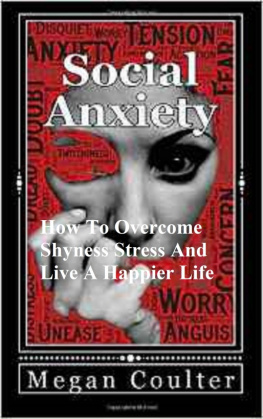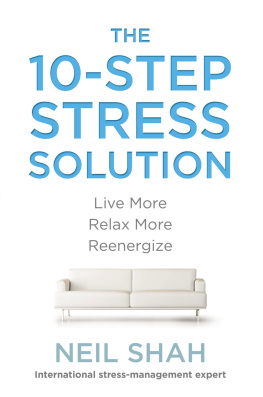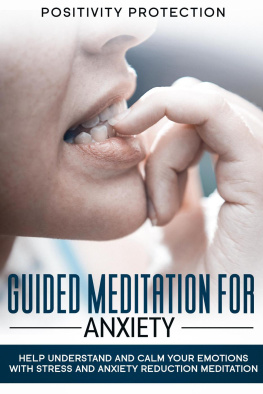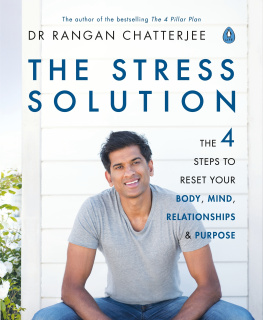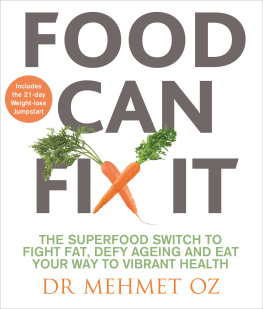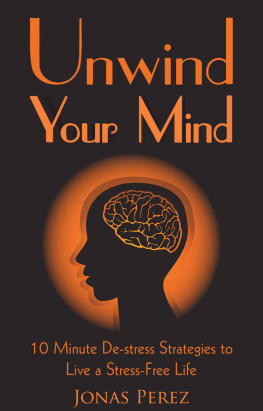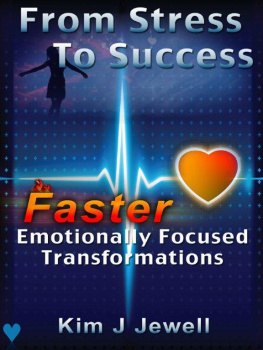ACKNOWLEDGMENTS
THIS BOOK WOULD not be possible without the support of so many people.
I want to start by thanking my family. Im so lucky to have been raised by two amazing parents who encouraged me to follow my heart and to not be afraid to work hard doing what I love. Im also grateful to have a great sister on this adventure with me.
Another big thank you to Jacob Tschetter, for your loving kindness. Im not sure how I would have gotten through this process without your pep talks, reality checks, and homemade green juice and cocktails.
Thank you to my wonderful agent, Leigh Eisenman, for your guidance and support.
I am so grateful to the wonderful team at Viva Editions, especially to my editor, Hannah Bennett, and to Allyson Fields, for believing in the book and helping me see the project through. Thank you to my publicist, Kathleen Carter for helping us take that vision further.
Thank you to the experts quoted in this book who were so generous with their time and insight: Megan Jones Bell, Dr. Taz Bhatia, Lauren Chiarello, Parijat Deshpande, Annbeth Eschbach, Ashley Feinstein Gerstley, Lisa Skye Hain, Leanne Jacobs, Dr. Sujay Kinsagra, Johari Mayfield, Emily Merrell, Mandi Nyambi, Karen No, and Ryan Smith. Im so grateful to have learned from you. Additionally, I want to express my gratitude to the outlets I have written for and organizations I have worked with through which I met some many of these experts.
Special thanks to my earliest test readers, Arissa Paschalidis, Mike Smith, and Cory Bradburn. Additional thank you to Armin Brott for helping me tighten up the manuscript.
I want to acknowledge my friends for their support, encouragement, and advice. Lemor Balter, Amanda Dugan, Alex Dickinson, Jess Garofano, Elana Lyn Gross, Brian Hodges, Anders and Carrie Nelson, Jill Ozovek, Dan Schawbel, and Devany Tiedman.
I also want to give a shout out to my friends in the yoga, barre, and Pilates communities for saving my posture (and my sanity) while I worked on this bookand for brightening my days with their warmth and energy.
CHECK YOUR VITALS
HAVE YOU EVER just felt... off? Or how about more than off? Have you ever felt like you were falling apart, running around trying to be everywhere and do everything and then collapsing into bed at night, only to find yourself wide awake at 3 a.m. with your mind racing?
Have you ever said to yourself, Once this month/ project/job search/wedding/divorce/[insert other stressful thing] is done Ill get back to the gym and start cooking and relieve my stress with happy thoughts instead of donuts and wine?
Have you ever just felt so emotionally drained and disconnected that going on a date or having a conversation with your partner felt like trying to communicate with someone on the other side of a very thick glass wall?
If you said yes to any of these, chances are that one or more of the vital signs of your wellness was (or may still be) out of alignment.
Vital signs is a term we hear a lot in relation to our health. Vital signs measure the bodys basic functions. The main vital signs that health care providers routinely monitor include:
Body temperature
Pulse rate
Respiration
Blood pressure
Knowing what the normal or recommended ranges are for your age and sex and also having a sense of what your personal baseline is can help you get a sense of whether youre in a good place. Depending on the health care setting, other measurements may be routinely monitored, such as blood glucose levels, electrolyte levels, lab values associated with certain organ systems, height, weight, and so on.
Vital Signs of Well-Being
In this book, well talk about another set of vital signs that will help you track your mental, physical, and spiritual well-being. Taking stock of these aspects of your overall wellness will help you identify patterns and imbalances and enable you to come up with realistic solutions to help you feeland stay-in alignment. Here are a few big ones:
energy levels and how they change through the day
what type of physical activity youre engaging in and how often
amount of sleep youre getting and the quality of that sleep
what youre eating and how consistent you are with consuming nourishing foods
struggles with cravings or addictions
stress levels and contributing factors
anxiety levels and contributing factors
how happy you feel
how connected you feel to others in your life
the smoothness of your interactions with others
Examining how we cope with stress and anxiety can also tell us a lot. Its hard to make progress toward our goals when were out of balance or when stress or anxiety is running the show.
When I was a new dietitian, I talked with my clients primarily about food. But food is really only one piece of a big picture of our wellness. As time went on and I began to integrate more health coaching practices into my work, wed also explore what else was going on in their lives. Client after client would tell me that stressful situations or things that triggered their anxiety had held them back from applying the concepts we discussed. Either they found themselves seeking solace in old coping mechanisms or just felt so overwhelmed that they couldnt think straight, much less find the energy to try new recipes or face a gym or workout class. Theyd talk about their lack of willpower, but it wasnt willpower at all.
Stress and anxiety are very similar and may manifest similarly. However, they are two different things. As explained by the Anxiety and Depression Association of America (ADAA), stress is a response to a threat, whereas anxiety is a reaction to stress. While we may not always be consciously aware of the exact source of that stress or anxiety, the more were able to tune into what were thinking and feeling and how we respond to whats going on in our life, the better were able to do something about it.
In the short term, stress can be helpfulits what enabled our ancestors to, say, outrun a predator that wanted to eat them. Its what helps a person push through a race or deliver a killer presentation despite jet lag. Chronic stress, however, can negatively impact our health. Countless studies have linked chronic stress to physical and mental health ailments. It can impair our immune system; interfere with our sleep, digestion, reproduction, and cognitive function; and undermine our mood. Its also been linked to weight gain and an increase in belly fat.
So while nutrition education is still a main part of my work, I spend just as much time talking about ways to manage our stress and anxiety as they pertain to our daily habits. My system incorporates regular check-ins these vital signs of mental, physical, and spiritual wellness. I help my clients achieve a more balanced, calm relationship with food and exercise as we also focus on mindset, coping skills, and self-care to support their long-term success. Even when our goals are related to very tangible things like food or a very measurable goal like a race time, getting into the right headspace to support that goal is key.
That said, if youre struggling with stress or anxiety to the point where it disrupts your daily function, reach out to a mental health professional for help. We all have our stuff, and we all deserve to feel well. While food and lifestyle changes can make a big difference to our mental health, sometimes we need a little bit of support. Working with a mental health expert who can help you find the right treatment approach can make a world of difference.
EASE
I encourage my clients to keep EASE in mind as a guide for identifying areas where they may need to address imbalances:
Energy
Anxiety
Stress
Emotions
These are important because they factor a lot into other things in our life.
Next page
